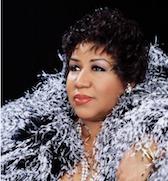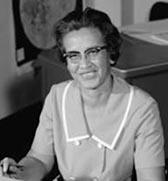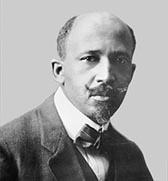Our dedication to Racial Equality and Social Justice (RESJ) spans decades. Learn more about our RESJ Initiative
Black History Month 2020
February is Black History Month—a time when the world pays tribute to the many contributions of African Americans and recognizes the adversities faced throughout the history of the African American diaspora. Cambridge College is proud to share the stories of inspiring African American leaders.

Ayanna Pressley made history by becoming Massachusetts' first black woman to be elected to the House of Representatives. Pressley is a force to be reckoned with who is committed to paving the way for women of color in office. Raised in Chicago, Illinois, Pressley’s mother worked multiple jobs to support her. Her mother was an activist and community organizer. She taught her daughter about black liberation and empowerment, giving rise to Pressley's sharp prose to advocate for her race and all other minorities with steadfast determination.
Pressley worked for both Representative Joseph Kennedy and Senator John Kerry and became the first woman of color to serve in the 100-year history of the Boston City Council. Her courage to advocate for others has been unwavering as has her commitment to ensure fairness in underserved communities. In 2010, she formed the Committee on Healthy Women, Families and Communities, addressing issues like domestic violence, child abuse and human trafficking. Time and time again, she has used her powerful voice to bring visibility to issues affecting the community. Pressley is also a familiar face to Cambridge College, both as a 2019 honorary degree recipient, and a 2017 commencement speaker. Her commitment and dedication to advocating for others are what make Ayanna Pressley such an influential person of our time and is why we recognize her during Black History Month.

Aretha Franklin was a music legend who defined the era of soul music from the 1960s to 2018. Having shown great talent since early childhood, the widely recognized Franklin established herself as a great pianist with a dynamic voice. She received recognition singing at her father's church and recorded her first album, “Songs of Faith” in 1956.
In addition to her music, Franklin had also always been an activist for the black community. Her father, a civil rights activist and friend to Martin Luther King, Jr., organized the most significant civil rights demonstration in Detroit, Michigan. Franklin spent her musical career during the 60s and 70s singing and bringing to light the civil rights and women’s issues going on at the time and she refused to perform for segregated audiences. She was an activist through her music and was awarded the Presidential Medal of Freedom by President George W. Bush in 2005 for her contributions. Up until the time of her death, this talented artist continued to perform for different large-scale events, including the Superbowl and the Presidential Inauguration for President Barack Obama in 2009. We honor Aretha Franklin during Black History Month for her contributions to black culture and for supporting the civil rights movement during a very critical time.

Barack Obama was the first African American President in the United States, serving as the 44th President from 2009-2016. Obama was son to parents from Kenya and the Midwest. Raised in Hawaii as a child, he attended Columbia University for his undergraduate studies. After working as a community organizer in Chicago, Illinois, Obama enrolled in Harvard Law School where he graduated magna cum laude and became the first black president of the Harvard Law Review. After law school, Obama went on to work as a civil rights attorney and professor at the University of Chicago Law School. He published his first book and received high praise and a Grammy in the category of Best-Spoken Word Album.
He entered politics when he became a state senator in Chicago, Illinois, creating legislation for improving education, healthcare, and helping the poor. In 2004, he ran for the US Senate and became the 5th African American in History to be elected. A few years later, Obama announced the candidacy that changed a nation, as he became the first African American President to serve our country. Inheriting a land in recession and need of change, Obama executed his vision for hope. By expanding on healthcare, education, repairing the housing market, and a plan to increase economic growth, the U.S. started to see improvements. Obama's legacy is seen today in the No Child Left Behind Act, decreased taxes for low-income individuals, the return of troops from the war in Iraq, and reform in social security systems. Obama's plan was to make a difference and included his agenda to revive the economy, provide affordable and accessible health care to all, strengthen our public education and social security systems, define a clear path to energy independence, tackle climate change, and end the war in Iraq. He provided reform to all. In 2013, Obama was chosen as one of Time's most influential people in the world, and for a good reason. In a time when people needed hope and reform, Obama delivered, and that is why we acknowledge him during Black History Month as a man who made meaningful changes and contributions to both to the African American community and our nation, and who continues to do so after his presidency.

Katherine Johnson was one of the first African American women to work at NASA and NACA. She established herself as a gifted mathematician, computing the flight path that allowed the first astronauts to orbit and walk the moon in the 1960s. Born on August 26, 1918, in West Sulphur Springs, West Virginia, she portrayed real talent with numbers as a child. She attended high school at the age of 10 years old, and in 1937, at age 18, she graduated with top honors from West Virginia State College. Johnson was chosen as one of the three African American students to be accepted into the integrated graduate program at West Virginia State College. She left the program to focus on her family. Johnson began working for NACA in 1953, where they hired African American women to serve as computers to perform and check calculations for technological developments. Her peers had so much respect for her that Astronaut John Glenn requested that she check the forecasts aboard his flight on the Friendship 7, the trip that made him the first man to orbit the earth. Johnson went on to work for the space program for 33 years. During that time, she worked with and taught hundreds of women employed by NASA. In 2015 President Barack Obama awarded her the Presidential Medal of Freedom. Johnson appeared in speaking engagements surrounding STEM and the progression of STEM for women and girls. She stated, “We will always have STEM with us. Some things will drop out of the public eye and will go away, but there will always be science, engineering, and technology. And there will always, always be mathematics. Everything is physics and math,”
Katherine Johnson passed away on February 24, 2020. We honor her during black history month for leaving us with a legacy of mathematics, pioneering and becoming the first woman to help our country orbit the earth.

B. Smith was an African American woman who broke boundaries for black women in the fashion industry and became a role model for women entrepreneurs of color. She is remembered during black history month as a legendary supermodel and a lifestyle entrepreneur. Smith was born on August 24th, 1949. She began her career in modeling, appearing in about 15 high fashion magazines. She became the first African American Woman to appear on the cover of the magazine “Mademoiselle” in 1976. Smith, who was often referred to as the black Martha Stewart, began working as a television host in the 1990s and as a lifestyle guru. She also ran multiple restaurants in D.C and New York City. She wrote books on cooking and lifestyle and had her very own line of home goods that were sold at Bed Bath and Beyond stores.

W.E Dubois was known for being a sociologist, author, historian, Pan Africanist, and activist. He is considered one of the most influential leaders in Black history. Dubois was born in Gran Barrington, Massachusetts. He was the first in his extended family to attend high school. He graduated from Fisk University, a school predominantly for black students. Upon graduation, Dubois attended Harvard University, where he became the first African American to receive a Ph.D. in 1895. Dubois accepted a position at the University of Pennsylvania as an assistant in sociology. In this role, he collected research in Philadelphia's African American neighborhood, specifically the 7th ward. This statistical research was used in his work "The Philadelphia Negro," a sociological study of African Americans in Philadelphia. Dubois became the first to perform a case study on the African American community in the U.S. He published "The Philadelphia Negro" in 1899.
After the death of his son, Dubois began to challenge the Jim Crow Laws leading to black suffrage. He disputed black conservative Booker T. Washington's strategy of accommodation. Dubois believed that the progression of African Americans could only come from protest and agitation and that black people should not accept discrimination and elevate through hard work. In 1905, he gathered with 30 men in Niagara Falls to create the Niagara movement, which aimed to end discrimination of all forms toward African Americans. From this movement in 1909, the National Association for the Advancement of Colored People (NAACP) was born. This organization fought to abolish segregation and ensure African Americans their constitutional rights. In addition to being the founder of the NAACP, Dubois also became the organization's editor to their monthly magazine called "The Crisis." Over the years, W.E Dubois became disillusioned with the country, losing hope about the equality of African Americans, and he became interested in communist affairs. In 1961, Du Bois officially joined the American Communist Party before leaving the country to live in Ghana at the invitation of its president and becoming a citizen there. Dubois died at age 95 in Accra Ghana just one day before Martin Luther King's historic civil rights march on Washington. W.E Dubois is remembered today as one of the most influential black leaders in history who paved the way, fighting for African American civil rights.

